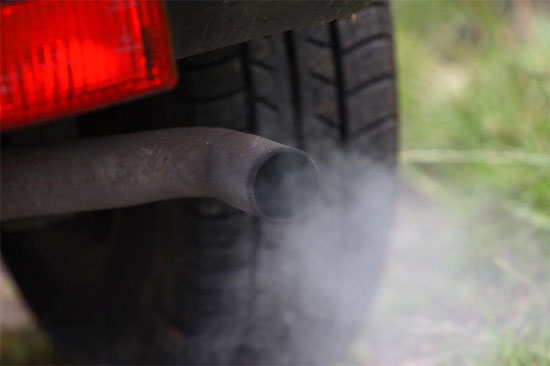The new catalyst produces methanol from CO2
(Lavoctv) - Laval University researchers have developed a highly effective method to convert CO 2 into methanol, a substance that can be used as a low-emissions fuel for vehicles. carriage. The research team led by Professor Frédéric-Georges Fontaine recently presented the details of this discovery in the journal of the American Chemical Society.
Researchers are looking for a way to convert carbon dioxide into methanol in a single step using energy-saving processes for years.'While there is oxygen, methanol burns CO2 and water,' explains Professor Fontaine. 'Chemists looking for catalysts can cause reversal reactions. That will help humans cut greenhouse gas emissions by, synthesizing a fuel that helps us reduce our reliance on fossil fuel fish. '

The catalyst was developed by Professor Frédéric-Georges Fontaine and his colleagues were made up of two chemical groups. The first group is borane, a compound of boron, carbon and hydrogen. The second group, phosphine, is made of phosphorus, carbon and hydrogen.'Unlike other catalysts that convert CO2 into methanol, our catalyst does not contain metals, which reduces the cost and toxicity of catalysts' , chemistry professor at the Faculty. Laval School of Science and Technology said.
The catalytic conversion of CO2 into methanol requires a hydrogen source and chemical energy. The researchers had the idea of using a compound called hydroborane (BH 3 ) , and the results were spectacular. The reaction is twice as effective as the best known catalyst - and it emits less waste. What makes this discovery even more interesting is the fact that the chemical reaction does not damage the catalyst, so it can be reactivated by adding a new substrate.
The only downside of this reaction is the price.'Our approach is to produce highly effective methanol based on chemical reactions, but now the process is still very expensive,' explains Professor Fontaine. 'It takes a lot of energy to synthesize hydroborane, which makes methanol more expensive than regular methanol. We are studying, working on this way to make the process more economical by optimizing reactions and finding other hydrogen sources. "
- The catalyst helps produce methanol directly from carbon dioxide
- Dangerous death from methanol in smuggled alcohol
- Finding a catalyst can convert CO2 into clean energy
- The primary way to save methanol poisoning
- The 49-person Russian shower gel when drinking alcohol instead
- Bus once charged, running 402km
- A new step in the production of gasoline from CO2
- Inventing catalyst to separate water into clean energy
- Catalyst can turn waste gas into fuel
- The new catalyst cleans exhaust from diesel engines
- Identify regular alcohol with industrial alcoholic alcohol methanol toxic
- How is methanol - an extremely toxic substance in alcohol destroying the body?
 Is the magnetic North Pole shift dangerous to humanity?
Is the magnetic North Pole shift dangerous to humanity? Washington legalizes the recycling of human bodies into fertilizer
Washington legalizes the recycling of human bodies into fertilizer Lightning stone - the mysterious guest
Lightning stone - the mysterious guest Stunned by the mysterious sunset, strange appearance
Stunned by the mysterious sunset, strange appearance